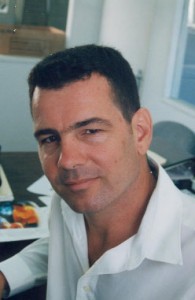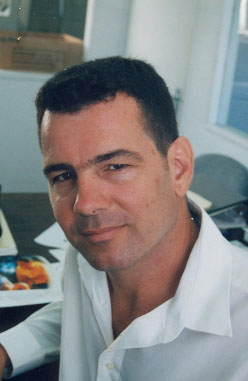The Private Sector Commission (PSC) believes in an inclusive approach to governance and in influencing politicians to practise win-win politics as against win-you-lose politics and prides itself on standing above the partisan politics that has crippled the country for many years.

He thanked the British government for its support to the Security Sector Reform Programme and urged the Guyana government to sign the memorandum of understanding with the British and to quickly put in place the parliamentary select committee on national security.
However, he noted in the PSC Chairman’s Annual Report that the re-appearance of heavily armed criminal gangs, slaughtering innocent civilians at Lusignan and both civilians and police at Bartica, “who remain unchallenged and at large, shifted the focus of the PSC back to a security and governance agenda.”
He said, “It is clear to us that the underlying causes of these types of attacks have not been addressed and that they have the potential to derail the economy.”
Recognising the efforts of acting Commissioner of Police Henry Greene, Correia reiterated the PSC’s call for his appointment to be confirmed. He also congratulated Chief of Staff Commodore Gary Best on his appointment and offered full support.
Declaring that Guyana’s future was brighter now than it was a decade ago, he said that while it was true that the country still has a far way to go, the economy was growing at a rate in excess of 5% per year, central government revenues increased by 28% in 2007 and the foreign debt was substantially down.
In the PSC Annual Report 2007, Correia said it is now estimated that the GDP for 2008 will be 4.6%. Inflation was predictably high in 2007 because of the implementation of VAT combined with imported higher commodity and food prices but it is projected that inflation will subside to about 6% this year.
He noted that the Guyana Business Outlook Survey for 2008, prepared by Ram and McRae, reveals that only 16% of the 74 companies surveyed project reduced profitability in 2008.
This is an improvement from 29% in 2007 and 28% in 2006. The survey also projects the turnover of 73% of the companies surveyed would increase in 2008 up from 68% in 2007 and 64% in 2006.
Correia noted, too, that the settlement of the Guyana/Suriname maritime border issue in 2007 brings with it the prospects of future oil exploration and the Takutu Bridge linking Guyana and Brazil and the Berbice Bridge, both scheduled to be opened later in the year, are important infrastructure which will facilitate increased trade and commerce.
On the implementation of a National Competitiveness Strategy in collaboration with the government, international community, labour and the private sector, he reported that an agreement was reached to hire a competitiveness director and to have a Competitiveness Secretariat established.
In his speech at the AGM, Correia stated that a strong country needs strong institutions, like the PSC, that are patriotic, independent, respectful of the rule of law and willing to stand up for what is just and right. He said that working with the private sector on a voluntary basis has costs attached, sometimes at expense to one’s own business but current progress taking place in the society including the judiciary, parliament, trades unions, private sector and the media, gives comfort in knowing that democracy continues to grow in Guyana and that the strong advocacy through the PSC has not been wasted.
Stakeholders Group
He recalled recent events in which the PSC intervened, including the current national stakeholders meeting in which it continues to be involved. He recalled also that the PSC had suggested the establishment of a national stakeholders group involving the parliamentary opposition and civil society to discuss security and President Bharrat Jagdeo had agreed to this in principle during the first half of 2006 but it was never implemented.
He said, “We are pleased that the government has now agreed to go this route as a first step in addressing some of our long-term concerns related to security and governance.”
He noted, too, their strong support for freedom of the press when government withdrew advertisements from the Stabroek News; their protest against the Commissioner General of the Guyana Revenue Authority for an unfair and severe tongue lashing of the private sector; teaming up with the Electoral Assistance Bureau to mount the largest group of civil society observers for the 2006 general and regional elections; and supporting the Guyana Elections Commission in the run-up to the 2006 elections by making strong representation to the two major political parties, the PPP/C and the PNCR.
Their representation, he said, also included “urging members of a dangerously divided elections commission” to maintain their focus on doing what was in the best interest of the nation.






